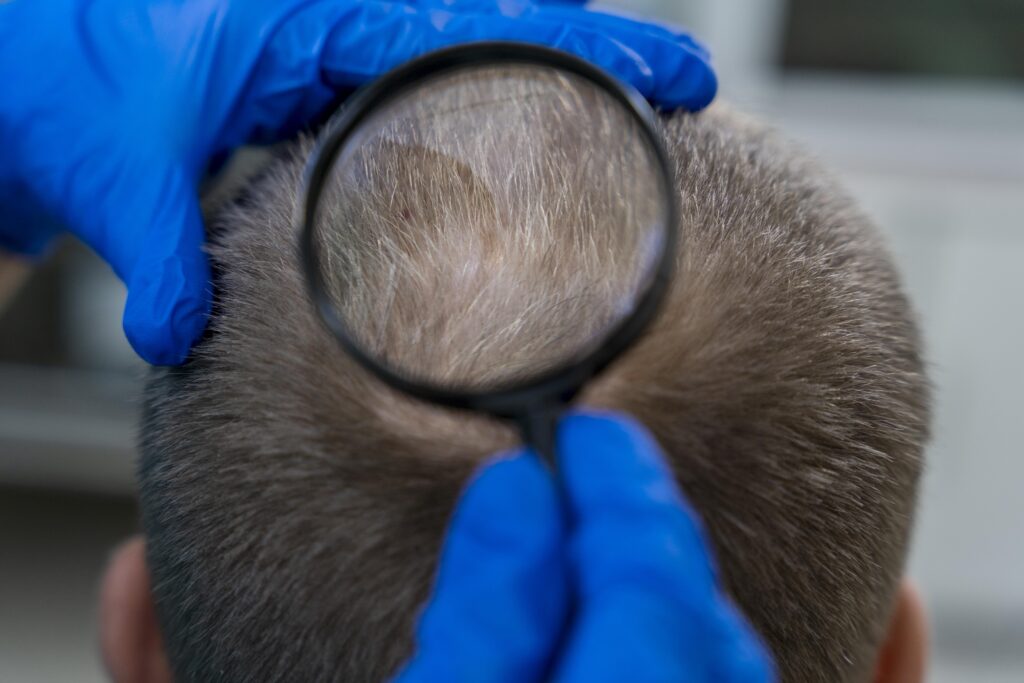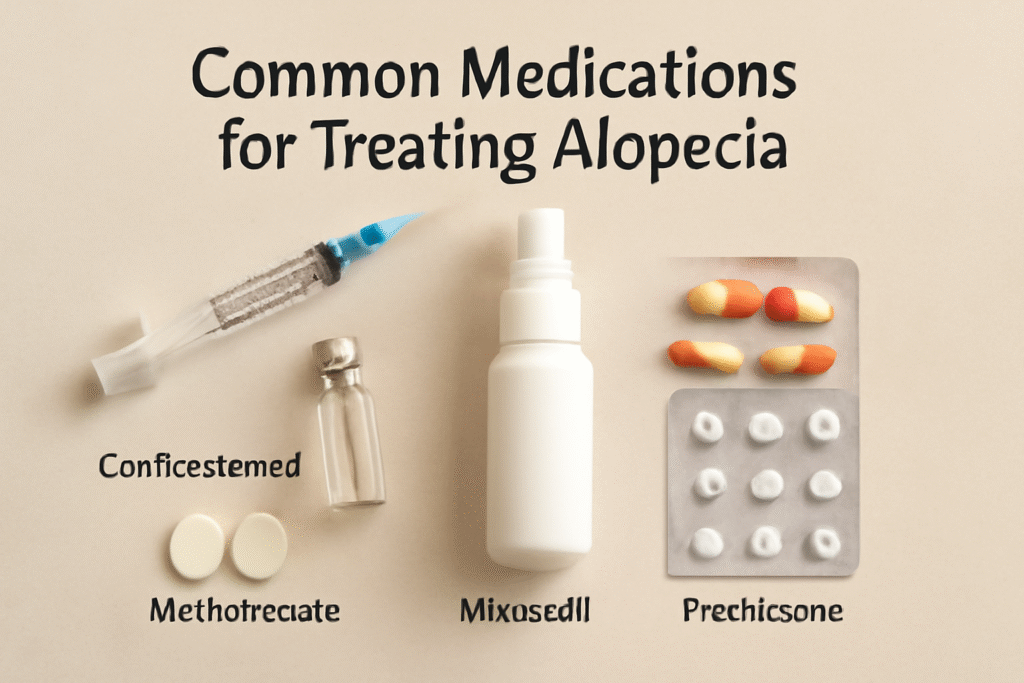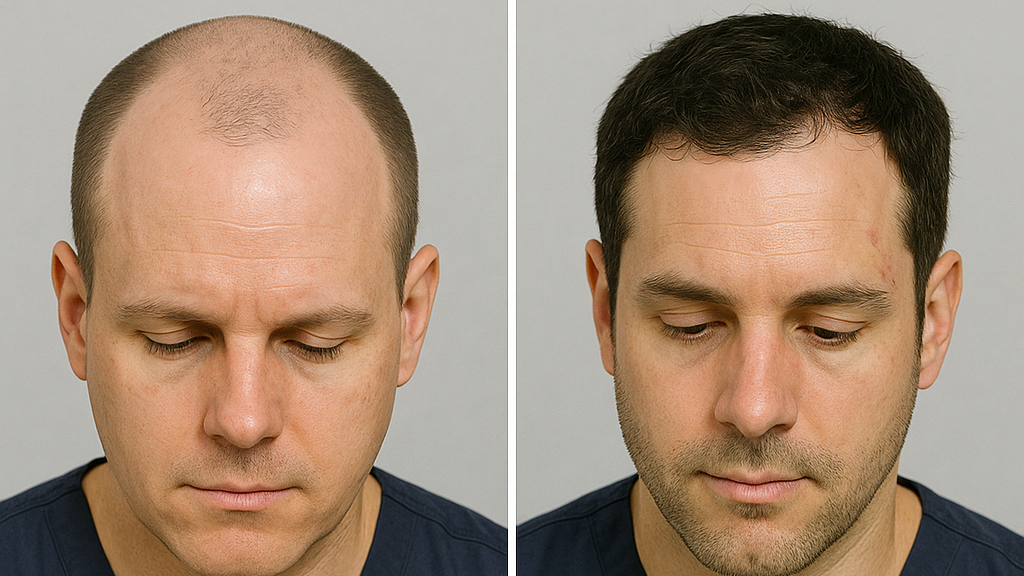Experiencing unexplained hair loss and looking for effective treatment? Alopecia Medication Guide 2025: Best Treatments for Every Type of Hair Loss
Includes scientifically backed options designed to slow hair fall, stimulate regrowth, and manage various types of alopecia.
Whether you’re facing alopecia areata, totalis, or androgenetic alopecia, the right medication can help restore hair health and boost confidence.

Supported by dermatologists and clinical research, alopecia medication provides trusted, targeted solutions to address the root causes of hair loss.
Learn how these treatments can support your recovery and offer lasting results.
Alopecia Medication Guide 2025: Best Treatments for Every Type of Hair Loss
Androgenetic Alopecia
- Commonly known as male or female pattern baldness.
- Often managed with oral medications and topical treatments to slow progression and promote regrowth.
Alopecia Areata
- An autoimmune condition that results in sudden patchy hair loss.
- May be treated with corticosteroids, JAK inhibitors, or immunotherapy.
Telogen Effluvium
- Often caused by stress, hormonal changes, or nutritional deficiencies.
- Usually temporary; managed with supportive care, dietary adjustments, and sometimes medications like minoxidil.
Common Medications for Treating Alopecia
1. Minoxidil (Topical and Oral)
- FDA-approved topical treatment used for various types of hair loss.
- Stimulates blood flow to hair follicles.
- Oral minoxidil may be prescribed in low doses under medical supervision.
2. Finasteride (for Men)
- A DHT blocker used in androgenetic alopecia.
- Slows hair thinning by reducing the hormone responsible for follicle miniaturization.
- Requires ongoing use to maintain results.
3. JAK Inhibitors (e.g., Tofacitinib, Baricitinib)
- Emerging treatments are especially effective for alopecia areata.
- Target inflammatory pathways involved in autoimmune responses.
- Require close monitoring due to possible side effects.
4. Corticosteroids (Topical, Injectable, or Oral)
- Common in treating alopecia areata.
- Help reduce inflammation around hair follicles.
- Often used in combination with other therapies.
5. Antibiotics (in specific cases)
- Sometimes used when inflammation or scalp infections contribute to hair loss.
- Not a primary treatment, but may be part of a broader regimen.

Benefits and Considerations of Medication-Based Treatments
- Non-surgical: Medications offer a non-invasive first step.
- Customizable: Treatment can be tailored to each patient’s condition.
- Monitoring Required: Some medications may cause side effects and require medical supervision.
What to Expect: Timeline and Results
- Initial effects may be noticeable within 3 to 6 months.
- Full results typically take 6 to 12 months.
- Continued use is often necessary to maintain progress.
- Results vary based on the type and severity of alopecia.

Why Choose Dr. Rana Irfan’s Clinic in Islamabad
- Over 20 years of experience in hair restoration and transplant procedures.
- Certified by ABHRS (American Board of Hair Restoration Surgery) and a member of ISHRS (International Society of Hair Restoration Surgery).
- An ethical, patient-centric approach adhering to international standards.
- State-of-the-art diagnostic tools to determine the most effective treatment plan.
Medical Tourism and Local Accessibility
- Located in Islamabad, our clinic serves both residents and international patients.
- English-speaking support staff and teleconsultations are available.
- Travel assistance and recovery support are offered for out-of-town patients.
Links Suggestions:
FAQs About Alopecia Medication
What is the most commonly prescribed medication for alopecia?
Minoxidil and finasteride are commonly prescribed, depending on the type of alopecia and the patient’s gender.
Can alopecia be cured with pills alone?
Medications help manage symptoms and stimulate regrowth but may not “cure” alopecia. Treatment plans are usually ongoing and individualized.
Are JAK inhibitors available in Pakistan?
Some JAK inhibitors are available under prescription and medical supervision. Dr. Rana Irfan can guide you based on your specific diagnosis.
Do antibiotics help with alopecia?
Antibiotics are not a primary treatment but may be prescribed if an underlying scalp infection or inflammation is present.
How soon can I see results with medication?
Most patients begin seeing visible changes within 3 to 6 months, with full effects in about a year, depending on the medication and adherence.
